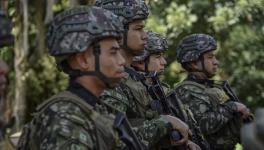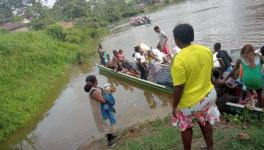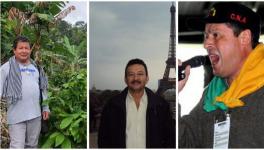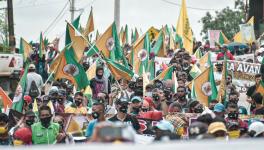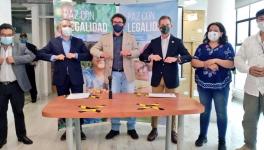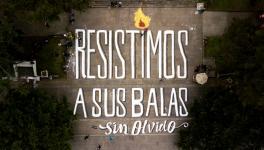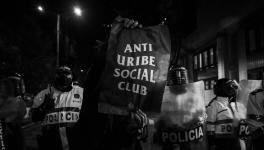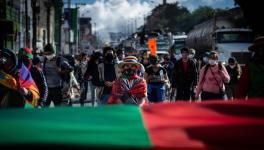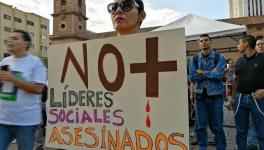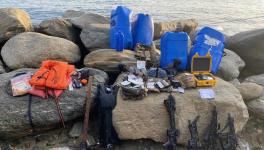Colombian Community Leaders Arrested in Latest Round of Repression
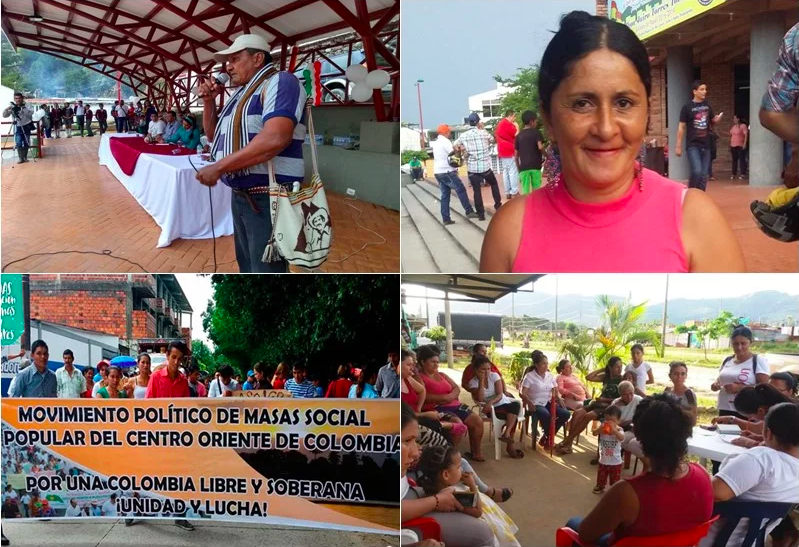
Alix Miriam Aguilar and José Hermes Burgos were arrested early this week. Photo: Colombia Informa
The Political Movement of the Social and Popular Masses of the Center East of Colombia (MPMSPCOC) condemned the arrest of two of their leaders, José Hermes Burgos and Alix Miriam Aguilar, on September 30 and October 1 respectively. MPMSPCOC pointed out that these arrests were part of the systematic persecution of their movement and Colombian social movements in general.
“This act of repression is part of the politics of criminalization and extermination that the regime has been applying to the social struggle, and that since 2016 has left more than 460 leaders assassinated, more than 60 in legal proceedings and incarcerated. This is their response to the defense that we do as communities against the pillaging and plundering of the natural resources that the State and transnational corporations carry out at the cost of the environment and the social and humanitarian crisis,” a communique from the platform said.
Hermes José Burgos is part of the board of directors of the National Peasant Association José Antonio Galán Zorro (ASONALCA), a member of MPMSPCOC and the People’s Congress. He is a well-known social leader and a defender of peasants’ rights and the rights of all social sectors. He has been accused by the Attorney General of conspiracy and rebellion.
Alix Miriam is a well-recognized social leader in the struggle for dignified housing in her city of Yopal in the department of Casanare and is also part of the MPMSPCOC and the People’s Congress. She is the president of the municipal committee of the Association of United Women for Casanare. This is not the first time that Miriam has faced state repression. In 2015, her house was raided, and despite no illegal material being found, there was a media campaign to slander her. Due to this persecution, she turned to the state agency, the National Protection Unit, which provided her with protection measures.
MPMSPCOC is a platform of regional organizations that work in diverse sectors, such as peasant and rural organizing, defense of natural resources and the environment, and indigenous rights. The groups that are part of the platform include youth and student movements, women’s organizations, productive cooperatives, and human rights organizations. The political movement is an integral part of the national platform of social movements, the People’s Congress (Congreso de los Pueblos).
Throughout its existence, the MPMSPCOC has faced harsh repression. The movement promotes autonomous and people-driven solutions and organizations as a way to combat state neglect, militarization and extractive capitalism.
In Saravena, a small city in the Arauca department, which is the epicenter of the movement, the organization has helped establish a community-run water treatment and processing plant, as well as cooperatives in several productive sectors like meat processing and cacao processing. The level of organization across all sectors of society has meant that the city has a high capacity of mobilization and has become an enemy of the state. During the 2000s, the organization faced a wave of assassinations and massive detentions, ordered by ex-president Alvaro Uribe, who used the presence of guerrilla groups in the region to justify a campaign of extermination of social organizations and human rights defenders.
One of the most emblematic events from this period in the region is the Massacre of Caño Seco which happened on August 5, 2004 when members of the National Army of Colombia assassinated three important leaders while they were meeting on a farm in Caño Seco, a small town in Arauca. The leaders were Leonel Goyenche, a teacher and union leader, Jorge Prieto, a health worker and president of the health workers union, ANTHOC, and Alirio Martínez, peasant leader and president of the peasant organization ADUC. The army tried to justify the massacre, claiming that they were combatants and had arrest warrants against them for conspiracy and rebellion.
The persecution of the movement did not stop. In 2015, two leaders from the movement were assassinated: Carlos Alberto Pedraza, a youth and urban leader from Bogotá and Daniel Abril, an environmental and human rights defender from Casanare.
“This criminal strategy of aggression is being implemented from long ago against leaders of centro oriente and across the country. Those who are not arrested individually or in groups, are assassinated, disappeared or banished, as happened with Carlos Alberto Pedraza and Daniel Abril. The goal is to eliminate those who dare to propose alternatives to the predatory model imposed by the Colombian State and the imperialists,” the MPMSPCOC communique explained.
Get the latest reports & analysis with people's perspective on Protests, movements & deep analytical videos, discussions of the current affairs in your Telegram app. Subscribe to NewsClick's Telegram channel & get Real-Time updates on stories, as they get published on our website.









